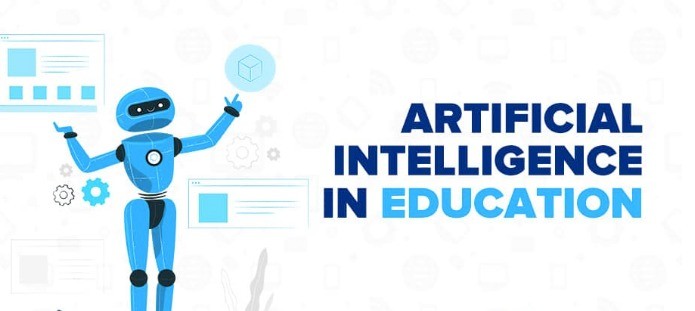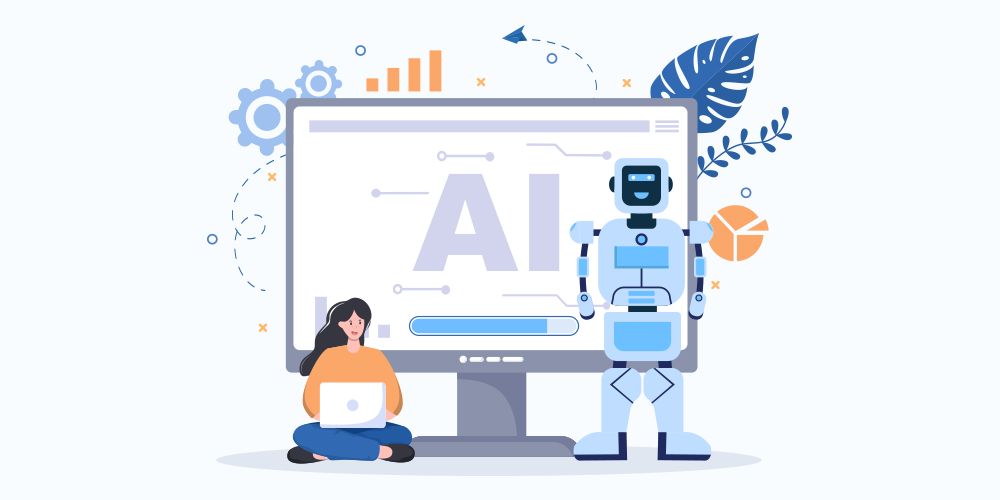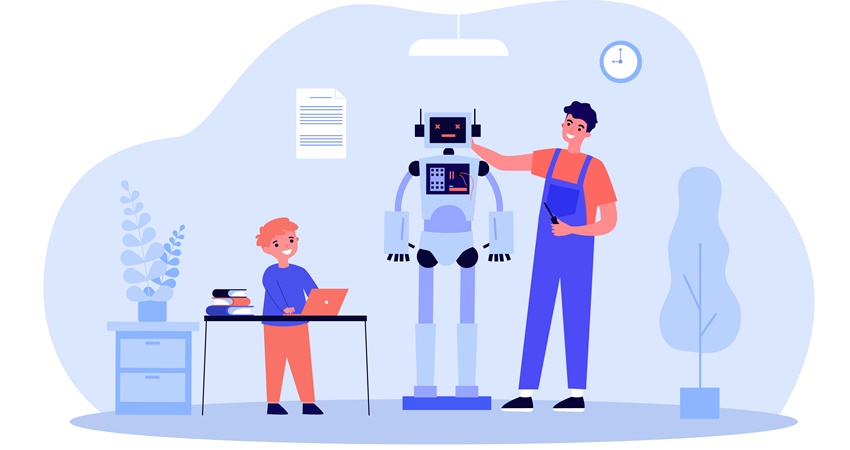How AI Can Help You Succeed in School
The world is changing rapidly; with it, so is how we learn and teach. One of the most exciting educational developments is the rise of AI in school.
Artificial intelligence is no longer a futuristic concept confined to science fiction; it’s transforming the educational landscape. But what exactly is AI, and how can it help you succeed in your studies?
- AI enhances learning experiences by personalizing education to meet individual student needs and learning styles.
- It's rapidly changing teaching methods worldwide, introducing innovative ways to engage students and improve learning outcomes.
- AI offers various tools for efficient study and academic success, such as intelligent tutoring systems, personalized learning platforms, and data analytics to track progress.
- It transforms traditional educational approaches by integrating advanced technology, making education more accessible and effective for learners of all ages.
By the end of this article, you will better understand AI and how it can revolutionize learning. So, let’s dive in and discover AI’s potential in education.
Understanding AI in Education
Artificial intelligence (AI) is revolutionizing education by creating computer systems that handle tasks traditionally needing human intelligence. With AI in school, AI offers personalized learning, automates tasks, and provides ongoing support for students and educators.
- Personalized Learning: AI tailors educational content to individual student needs, adapting to their pace and learning style for more effective study.
- Task Automation: AI automates routine tasks like grading and administrative duties, allowing educators to focus more on teaching.
- Continuous Feedback: AI provides instant feedback to students, helping them understand their mistakes and learn from them in real time.
- 24/7 Support: With AI, students can access a virtual tutor anytime, ready to assist with studies, identify weaknesses, and suggest improvements.
- Enhanced Decision-Making: AI helps educators make data-driven decisions by analyzing student performance and identifying areas for improvement.
How AI in Schools Personalizes Your Learning Journey

One of the most significant benefits of AI in education is its ability to personalize the learning experience. Traditional classrooms often follow a one-size-fits-all approach, but AI allows for customization based on your individual needs and learning style. Here’s how AI personalizes your learning:
- Adaptive Learning: AI algorithms analyze your performance in real time, identifying strengths and weaknesses in various subjects. They adjust the content and pace to keep the material challenging yet accessible, promoting growth without overwhelming you and enhancing your educational experience.
- Personalized Feedback: AI provides instant feedback on your work, pinpointing areas for improvement with detailed guidance. It promotes deeper learning by encouraging reflection and helping you understand your mistakes, building a solid foundation of knowledge.
- Customized Learning Paths: AI designs learning paths aligned with your goals and interests, making education more engaging and relevant. By tailoring the curriculum to your needs, AI turns the learning journey into an exciting adventure, boosting motivation and enthusiasm as you work towards your milestones.
AI Tools for Academic Success
Choosing the right edtech tools is crucial as AI tools quickly become essential in contemporary education. They provide resources that boost learning and simplify studying, empowering students and educators alike to create a more dynamic and effective learning environment. AI-driven tools are transforming how students learn by offering assistance in multiple areas:
- Writing Assistance: Tools like Grammarly and Quillbot use AI to help you improve your writing skills. They can check for grammar and spelling errors, suggest better word choices, and even help you clarify sentences.
- Research and Information Gathering: AI research assistants like Elicit can help you find relevant information, summarize articles, and generate different perspectives, making research more efficient and insightful.
- Time Management and Organization: AI-powered scheduling tools can help you manage your time effectively, prioritize tasks, and stay organized.
- Personalized Tutoring: Platforms like Khan Academy use AI to provide personalized tutoring in various subjects, offering targeted lessons and exercises based on your needs.
The Benefits of AI in School

AI transforms education by enabling personalized learning, automating tasks like grading, and providing continuous access to adaptive materials. It allows students to learn independently and frees teachers to focus on students and curriculum, promoting a flexible education system.
- Improved Learning Outcomes: AI offers personalized learning experiences and support, enhancing academic performance by adapting to your style and pace, ensuring you understand complex concepts for better study results.
- Increased Engagement and Motivation: AI transforms traditional learning with interactive and engaging methods. It uses gamification and customized content to motivate you and make learning more enjoyable.
- Greater Access to Education: AI breaks geographical barriers, providing quality education to remote or underserved students through online courses and resources.
- Enhanced Teacher Effectiveness: AI automates routine tasks, allowing teachers to focus on individualized support and guidance and developing better teaching strategies for a personalized learning environment.
AI for Students with Special Needs
AI can break down barriers and create more inclusive learning environments for students with disabilities. AI can help students reach their full potential by providing personalized support and adapting to individual needs. Here are some examples of how AI is being used to support students with special needs:
Personalized Learning Platforms
AI-powered platforms are transforming education by offering tailored learning experiences that cater to each student’s unique styles and needs. By adapting to different learning paces and styles, these platforms enhance the educational journey for diverse learners.
- Adaptability: Adjusts content difficulty to match individual learning progress.
- Diverse Modalities: Offers visual, auditory, and other learning methods to suit different preferences.
- Personalized Feedback: Provides customized feedback to help students improve independently.
- Student-Centric: Supports varied educational needs, enhancing overall learning outcomes.
Assistive Technologies
AI is powering a range of assistive technologies that can significantly improve the learning experience for students with disabilities. For example:
- Speech-to-text and text-to-speech tools: The AI tools assist students with dyslexia or other learning differences in improving their reading and writing abilities.
- Screen readers and magnifiers: These tools can help students with visual impairments access digital content.
- Real-time captioning: This technology can help students with hearing impairments follow classroom discussions and lectures.
Early Intervention and Support
AI technology can be crucial in identifying students at risk of developing learning difficulties. By analyzing student performance and behavior data, AI assists educators in providing early intervention and support, helping prevent more significant future challenges.
- Early Detection: AI analyzes performance and behavior data to spot early indicators of learning difficulties.
- Targeted Support: It enables educators to tailor interventions to individual student needs.
- Proactive Approach: It helps prevent more substantial challenges through timely intervention.
- Data-Driven Decisions: It uses patterns and trends in data to inform educational strategies.
- Resource Optimization: It allows educators to allocate resources more effectively to support at-risk students.
By providing personalized support and removing barriers to access, AI can help create a more inclusive and equitable education system where all students have the opportunity to thrive.
AI and the Future of Work

While AI is transforming how you learn today, it’s also reshaping the world you’ll work in tomorrow. Understanding how AI changes the job market can help you prepare for future career success.
AI automates many routine tasks and creates new opportunities. The key is to develop skills that complement AI, not compete with it. Here are some essential skills to focus on:
- Critical Thinking and Problem-Solving: AI can analyze data and offer solutions, but it needs human intelligence to interpret those solutions, identify potential biases, and make informed decisions.
- Creativity and Innovation: As AI takes over repetitive tasks, human creativity becomes even more valuable. You'll need to think outside the box, develop new ideas, and find innovative ways to use AI to your advantage.
- Adaptability and Continuous Learning: The job market is evolving rapidly, and you'll need to be adaptable and willing to learn new skills throughout your career. Embrace lifelong learning and stay curious about new technologies.
AI is also opening up exciting new career paths. Here are some examples:
- AI Specialists: These professionals develop and implement AI algorithms, working in machine learning, natural language processing, and computer vision.
- Data Scientists: They analyze large datasets to extract insights and inform decision-making, playing a crucial role in various industries.
- AI Ethicists: As AI becomes more prevalent, ethicists must ensure its responsible development and use, addressing issues like bias, fairness, and accountability.
By developing these skills and exploring these emerging fields, you can position yourself for success in an AI-driven world. Remember, AI is a tool; your ability to use it effectively will be crucial in the future job market.
Addressing Concerns about AI in Education
While AI offers numerous benefits, it also raises concerns regarding data privacy, equity, and the potential depersonalization of education. Responsible handling of student data is crucial in maintaining trust and protecting sensitive information.
Furthermore, uneven access to AI technologies risks exacerbating educational inequalities. Ensuring that all students, regardless of their socio-economic background, can benefit from AI-enabled learning is essential.
- Ethical Considerations: Using AI responsibly in education is vital, especially when protecting student data and privacy. Institutions should set clear guidelines to safeguard sensitive information and be transparent about AI usage. Ethical use also means avoiding biases and ensuring all students have equal access to technology-enhanced learning.
- The Role of Human Interaction: While AI can support education, it can't replace the human element crucial for a well-rounded education. Interactions with teachers and peers are key to students' social and emotional development. Teachers provide insights, empathy, and mentorship that AI can't replicate, while peer interactions foster collaboration and communication skills essential for growth and future success.
Tips for Effectively Using AI in School
Enhancing educational outcomes without compromising the human touch is essential when integrating AI in school settings. AI tools should streamline administrative tasks, personalize learning pathways, and provide insightful analytics to educators, allowing them to focus more on teaching and mentoring. Here are some practical tips for leveraging AI to enhance your learning:
- Embrace the Technology: Dive into the world of AI by exploring various AI-powered tools available today. Feel free to experiment with different platforms and applications to discover which ones align with your needs and learning style. This hands-on approach will help you become more comfortable and proficient with the technology over time.
- Use AI as a Supplement, Not a Replacement: It's important to view AI as an enhancement to your learning journey rather than a substitute for your efforts. Use AI to automate tedious tasks, deliver personalized learning experiences, and provide unique insights. However, always rely on your critical thinking skills and intuition to guide your decisions and understandings.
- Develop Your Skills: In an increasingly AI-driven world, honing essential skills such as critical thinking, problem-solving, and creativity is more important than ever. These skills will enable you to effectively interpret AI outputs, apply innovative solutions, and adapt to new challenges. Engage in activities and courses that challenge your thinking and foster your creativity.
- Stay Informed: AI rapidly evolves, with new developments and applications emerging regularly. Stay updated on the latest trends, especially in education. It will help you use AI effectively and contribute to discussions about its role in learning. Subscribe to industry newsletters, follow influencers on social media, and attend webinars and conferences to stay informed.
Final Thoughts
AI in school is transforming the learning experience, offering personalized support, increased engagement, and improved outcomes. By embracing these technological advancements and using AI tools effectively, you can unlock your full potential and achieve academic success.
- Explore the possibilities: Look into various AI-powered learning tools available today. Spend time researching and trying different options to find those that best fit your needs and learning style, from language apps to tutoring platforms.
- Integrate AI into your study routine: Use AI tools in your daily studies to improve writing, research, time management, and learning. Try AI assistants to organize schedules or writing aids to enhance essays and assignments.
- Stay informed about AI in education: Keep up with the latest trends in AI technology and its use in education. Follow blogs, attend webinars, or join discussion groups to see how these innovations can benefit your learning.
Ready to experience the power of AI in your education? Book a demo with PathBuilder today and discover how our adaptive learning platform can help you achieve your academic goals.
Author
-

The PathBuilder team is a dynamic group of dedicated professionals passionate about transforming education through adaptive learning technology. With expertise spanning curriculum design, AI-driven personalization, and platform development, the team works tirelessly to create unique learning pathways tailored to every student’s needs. Their commitment to educational innovation and student success drives PathBuilder’s mission to redefine how people learn and grow in a rapidly changing world.
View all posts

















The PathBuilder team is a dynamic group of dedicated professionals passionate about transforming education through adaptive learning technology. With expertise spanning curriculum design, AI-driven personalization, and platform development, the team works tirelessly to create unique learning pathways tailored to every student’s needs. Their commitment to educational innovation and student success drives PathBuilder’s mission to redefine how people learn and grow in a rapidly changing world.